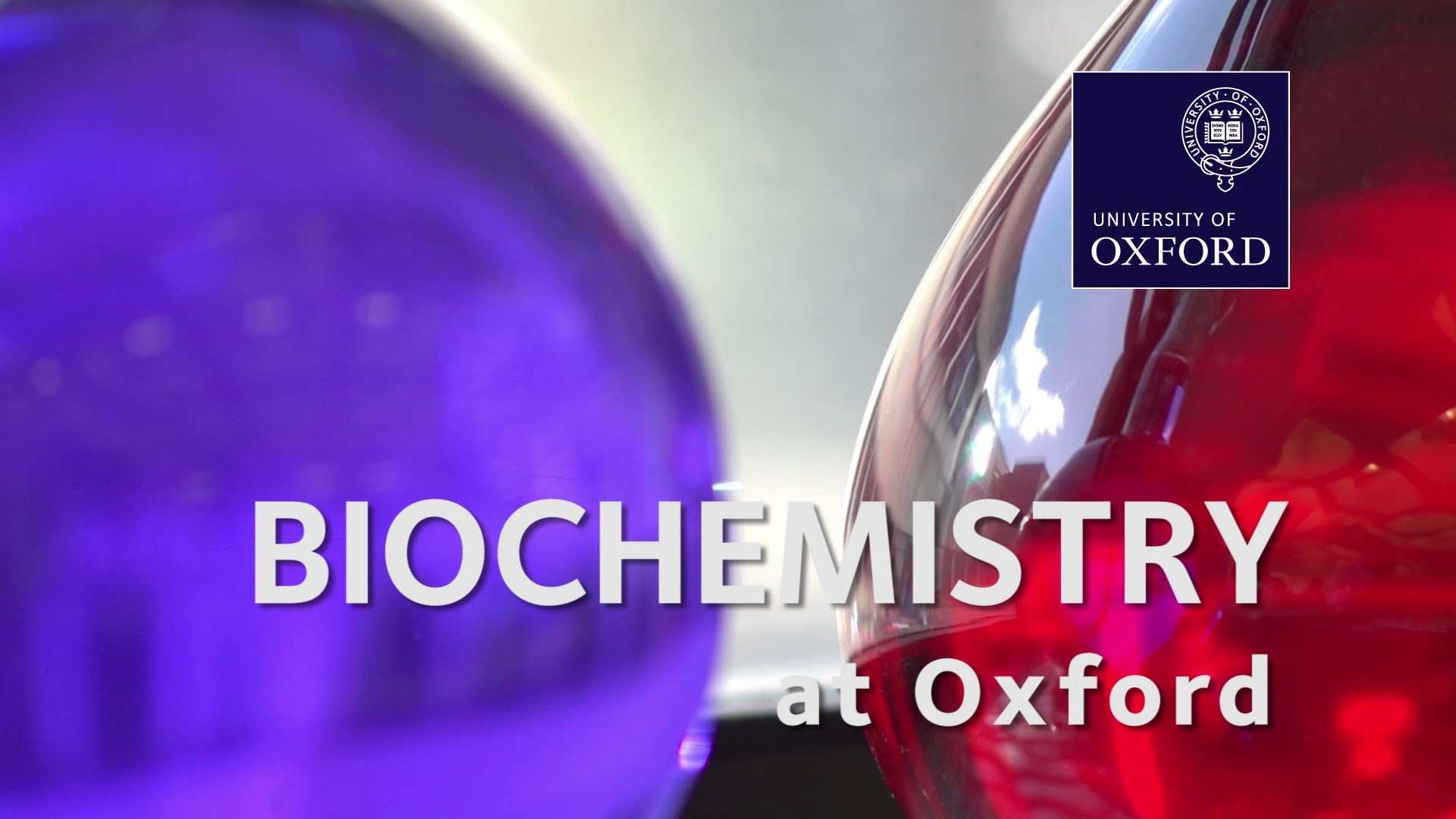
12 Jun
2022
Introduction of Oxford Biochemistry
<p>Biochemistry at Oxford</p><p><img src="https://lh6.googleusercontent.com/DChGUFG5iYbMGq0x3KzIsryocO4cNo5sf7VmEvooCXq63-Wj4G89_2I4KMddfELrhcGwlUwyV2pG_8KVlbojay3-ZkWcSJC14FppppDYaFL2IS8izTowTG4kTX2Bb7yQoMLZFfPv" alt=""></p><p>(New biochemistry building is one of the most modern and fancy university departments in Oxford. But it’s a shame that the first 3 years are mostly spent not here but in the old, not so modern anatomy and zoology department lecture theaters.)</p><p> </p><p><strong>My Experience</strong></p><p>“One of the easier degrees to be admitted to Oxford with but one of the hard ones to graduate with high marks.”</p><p> </p><p>During the orientation week, I received all the books I would need for the next 4 years (rented) and was shocked by 1) the size of text books and 2) the number. Many of them were very heavy one of which is Biochemistry by Stryer - read by some of high school students during application period.</p><p><img src="https://lh3.googleusercontent.com/oixUrwfmmqAQVCQzwQyjV7q133VdZ9dXa8KQvd9KowTIx_fKCYJdu-UJy_iOG5vfrAJ4DWWJgIA92ihbgg7KqwmJDCTVVwrV9UWAAAha3hoRew3mWEywxSZ4elqLjUI7s-Pcd_1K" alt=""></p><p><img src="https://lh5.googleusercontent.com/IAdYO8V5WFbmAgY8270ExoxT8qMa8kZ6pvOXHZ2b2Km7sLHRVJCq223vRSgebVKffOkzFg43KOb2rFHNEGZHvsH77gFoU2siw92_q0TPlsY5ThPsNTV-4yGmqS6imx-trugBQ30X" alt=""></p><p> </p><p>My first year was very well balanced between studies and life outside studies. The second year was slightly skewed to spending more time outside studies because biochemists had no second year exams! (In Oxford, some courses do not have second year exams, e.g. PPE, Materials Sciences). Naturally, second year is often regarded as the best year of university life for the biochemists especially with the perfect weathered and stress-free summer in the beautiful city.</p><p> </p><p>But, I had to pay the price of having a very challenging 3rd year exam that is based on two years worth of academic studies. In fact towards the end of the 2nd year term as my friends were finishing exams, I already started to feel the pressure.</p><p> </p><p>Biochemistry 3rd year exam is composed over six 3 hour papers occurring over 7 days with a day break in the middle. The first five are essay based where we have to write out 3 essays in 3 hours - that’s right biochemistry is heavily essay based degree. The whole challenge is to memorize an immense amount of science and unleashing them within what feels like not enough time. Sometimes there some who feel they are not ready for the exams and take a year off a few weeks before and in extreme cases, a day before!</p><p><br> </p><p><strong>Typical Week in Biochemistry</strong></p><p>1-2 tutorials</p><p>2 lectures a day</p><p>3-5 hours of lab on Fridays</p><p> </p><p>Most of tutorial works are reading up on journals with reference to textbooks in answer to essay questions. I personally found journal readings very challenging. I very much found it difficult to get used to obtaining information from science reports than from textbooks with all the info neatly organised. So although it is generally regarded that one tutorial essay requires 8 hours, I spent more. Sometimes there were some journals given as tutorial work where those journals were in fact published my tutors!</p><p> </p><p>Officially, speaking, although tutorials are compulsory, lectures are not. In fact, all the lecture notes are uploaded to the biochemistry website. But most biochemists choose to attend the lectures because the amount of contents covered are a lot and with the fast pace of lectures, we can cover a lot in short amount of time. And also because of free prints!</p><p> </p><p>I personally didn’t very much enjoy the 1st-3rd year practicals except a few occasional ones like PCR and cloning. I much preferred tissue culturing, viral transfection sort during my 4th year project.</p><p> </p><p><img src="https://lh5.googleusercontent.com/cuxiVykCPlf22IOQ7-OXxU1YvOjoDK9Dm8j_ynXgqSEFq2XPheltlsOpjpVFJbRI1KXlpObrJjbz2VdmM-zTJ5AQTf3oyYRN_72LllpWpRA4H0uqInCCjsZ0hpukTvKHIOUNxs_h" alt=""><img src="https://lh5.googleusercontent.com/QANcw9d71H7HrBjV7fM8KIpUK4czeFLizwgJYxx1qHdL_2gUPzp3AC38VKt-ShMaKz_io1AU-uUYJ3ZiwGQ190J3ahQh6UydlOmREcwd6Wga7rrVadn5FVKmV4wIRHFOp1dWspyl" alt=""></p><p> </p><p><strong>Course</strong></p><p><i>1st year</i></p><p>Molecular Cell Biology</p><p>Biological Chemistry</p><p>Biophysical Chemistry</p><p>Organic Chemistry</p><p>Maths & Statistics</p><p> </p><p>Actually, my two favourite courses were organic chemistry and biophysical chemistry. A big shame because none of them were studied beyond the 1st year!</p><p> </p><p>We had the same lectures on organic chemistry as with the chemists. My organic chemistry tutors were also chemistry lecturers.</p><p><img src="https://lh5.googleusercontent.com/6zyeyGoff4XoRTwLhlxOein8PuunqRK1gXkqz0PhjgtXoVzqz6R_ZGfgi0EsdQvf2UvhznTuQ79YpRPqP3fxmzFs1yqOQ3cayXJankeGqdVFzjglrROXthyPyP4NqkYSsMb9Tf4U" alt=""></p><p> </p><p><i>2nd & 3rd year</i></p><p>4 courses with 10 topics each</p><figure class="table"><table><tbody><tr><td>Macromolecular Structure and Function</td><td>Bioenergetics and Metabolism</td><td>Genetics and Molecular Biology</td><td>Cell Biology and the integration of function</td></tr><tr><td><p>Crystallography</p><p> </p><p>Enzymes</p><p> </p><p>Membrane Proteins</p><p> </p><p>Metal Ions</p><p> </p><p>Nucleic Acid/ Protein Interaction</p><p> </p><p>Physical Methods in protein structure determination</p><p> </p><p>Protein Purification & Characterisation</p><p> </p><p>Biophysical techniques</p><p> </p><p>Protein Structure, Folding Mechanism</p><p> </p><p>Integrated Structural Biology</p><p> </p><p>Structure Based Drug Design</p></td><td><p>Bioenergetics</p><p> </p><p>Plant Metabolism</p><p> </p><p>Human Metabolism</p><p> </p><p>Advanced Human Metabolism</p><p> </p><p>Muscle Contraction</p><p> </p><p>Prokaryotic metabolism, physiology and regulation</p><p> </p><p>Functional Glycobiology</p><p> </p><p>Molecular Motors</p><p> </p><p>Nitric Oxide & Calcium</p><p> </p><p>Structure Function relations in photochemical and respiratory systems</p></td><td><p>DNA structure & replication</p><p> </p><p>Eukaryotic DNA replication</p><p> </p><p>Genetic Toolbox</p><p> </p><p>Transcription 1</p><p> </p><p>Transcription 2</p><p> </p><p>RNA Biology: translation</p><p> </p><p>Molecular Biology Toolbox</p><p> </p><p>Chromosome Biology</p><p> </p><p>Genomics</p><p>Viruses</p></td><td><p>Macromolecule target & transport</p><p> </p><p>Principles of Cell Signalling</p><p> </p><p>Apoptosis</p><p>Cell growth & division</p><p> </p><p>Immunology</p><p> </p><p>Photoreception in Mammals</p><p> </p><p>Protein Targeting</p><p> </p><p>Cell Matrix</p></td></tr></tbody></table></figure><p> </p><p><a target="_blank" rel="noopener noreferrer" href="http://www.bioch.ox.ac.uk/aspsite/index.asp?sectionid=about_und_course">http://www.bioch.ox.ac.uk/aspsite/index.asp?sectionid=about_und_course</a></p><p> </p><p>Most biochemistry students will have topics that he/she really love but also don’t like. For me, my favourite ones were human and plant metabolisms while I didn’t much enjoy proteins. Fortunately, we are not examined on every module we are taught and can choose ourselves!</p><p> </p><p><i>4th year</i></p><p>4th year is a year where you conduct a lab project based on which you write your own thesis. This lab research can be done in the research area of your choice. In fact, lab research can be done abroad either in the US (Princeton) or Europe. I personally went to Princeton with 2 other biochemists in my year. The lab I was in was looking at breast cancer metastasis to lungs and bone.</p><p> </p><p>“My supervisor was investigating two proteins that had a potential role in the metastasis and my lab project was to confirm the hypothesis through in vitro metastatic functional assaying of overexpressed and knockdown samples.”</p><p> </p><p>After submission of thesis, biochemists also need to sit two exams that are chosen from:</p><p>Molecular Immunology*</p><p>Plant Molecular Biology</p><p>Neuropharmacology</p><p>Membrane Transport</p><p>Glycobiology</p><p>Human Disease*</p><p>Bionanotechnology</p><p>Systems Biology</p><p>Signalling to the Nucleus</p><p> </p><p>I chose biochemistry at the beginning with the hope to study some physiology/ medicine related sciences and immunology and human diseases were very enjoyable courses to study.</p><p> </p><p><strong>After Oxford Biochemistry</strong></p><p><a target="_blank" rel="noopener noreferrer" href="http://www.bioch.ox.ac.uk/aspsite/index.asp?pageid=419">http://www.bioch.ox.ac.uk/aspsite/index.asp?pageid=419</a></p><p>According to the official department site, about half of the graduates remain in the academia pursuing further studies and the other half that starts career work in the various industries that include:</p><p> </p><p>Research (Pharmaceuticals)</p><p>Consulting (General, bio-pharma)</p><p>Education</p><p>ETC</p><p> </p><p>Most of my friends seem to have ended up in consulting.</p>